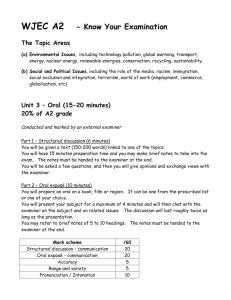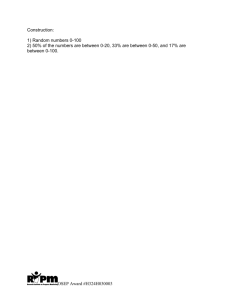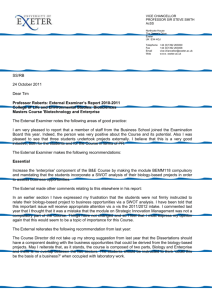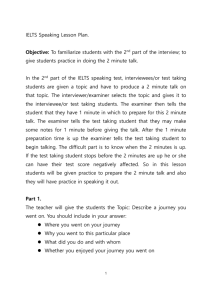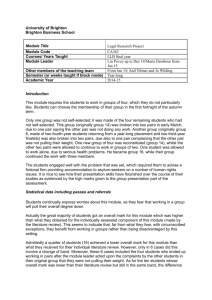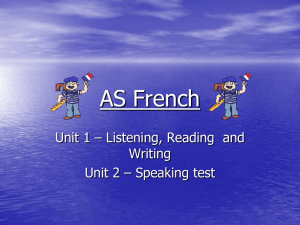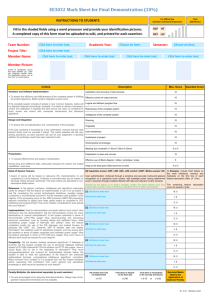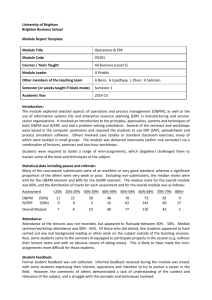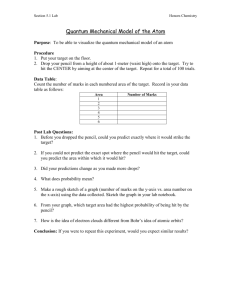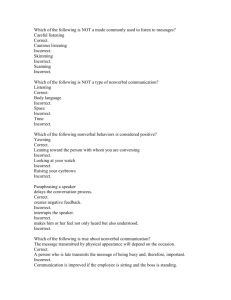Test Taking Advice: Listening, Reading, Writing
advertisement
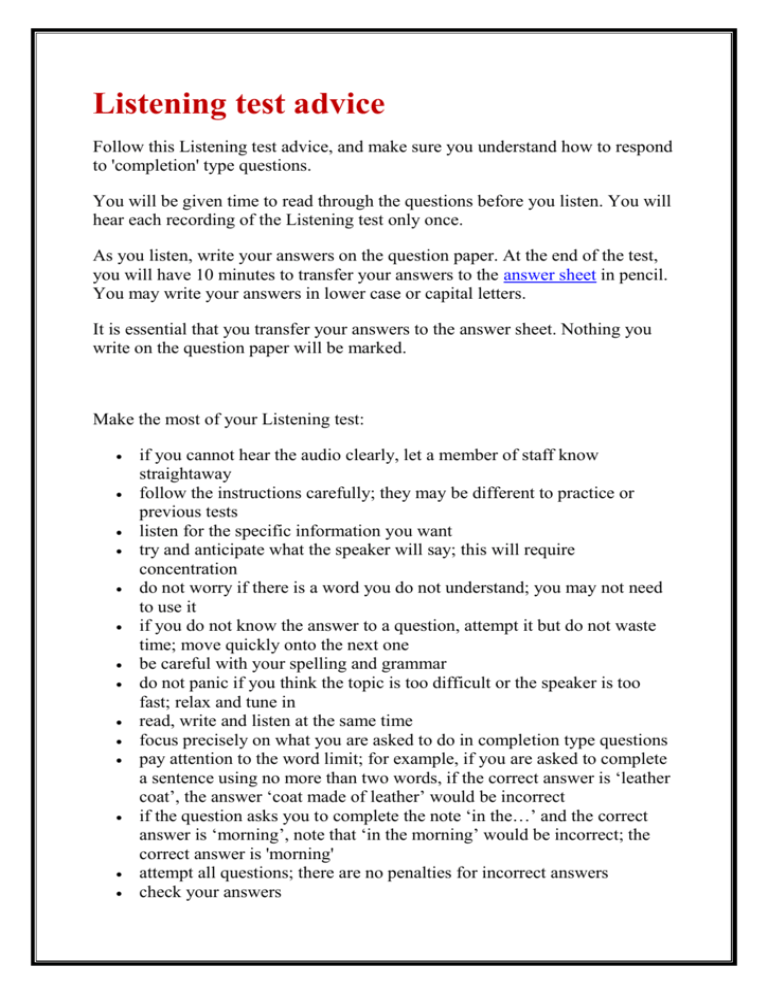
Listening test advice Follow this Listening test advice, and make sure you understand how to respond to 'completion' type questions. You will be given time to read through the questions before you listen. You will hear each recording of the Listening test only once. As you listen, write your answers on the question paper. At the end of the test, you will have 10 minutes to transfer your answers to the answer sheet in pencil. You may write your answers in lower case or capital letters. It is essential that you transfer your answers to the answer sheet. Nothing you write on the question paper will be marked. Make the most of your Listening test: if you cannot hear the audio clearly, let a member of staff know straightaway follow the instructions carefully; they may be different to practice or previous tests listen for the specific information you want try and anticipate what the speaker will say; this will require concentration do not worry if there is a word you do not understand; you may not need to use it if you do not know the answer to a question, attempt it but do not waste time; move quickly onto the next one be careful with your spelling and grammar do not panic if you think the topic is too difficult or the speaker is too fast; relax and tune in read, write and listen at the same time focus precisely on what you are asked to do in completion type questions pay attention to the word limit; for example, if you are asked to complete a sentence using no more than two words, if the correct answer is ‘leather coat’, the answer ‘coat made of leather’ would be incorrect if the question asks you to complete the note ‘in the…’ and the correct answer is ‘morning’, note that ‘in the morning’ would be incorrect; the correct answer is 'morning' attempt all questions; there are no penalties for incorrect answers check your answers Reading test advice Follow this Reading test advice, and make sure you understand how to respond to ‘completion’ type questions. It is essential that you write your answers on the answer sheet. Nothing you write on the question paper will be marked. You may write your answers on the question paper and transfer them to the answer sheet before the end of the test if you like. However, it is important to note that you will not be given extra time to do this. You must write your answers in pencil. Make the most of your Reading test: look out for the title, headings and any special features such as capital letters, underlining, italics, figures, graphs and tables make sure that you understand the questions and follow instructions carefully pay attention to timing; do not spend too long on one passage or question do not try and read every word; remember, you are reading for a purpose if you do not know the answer to a question, attempt it but do not waste time; move quickly onto the next one do not panic if you do not know anything about the subject of the text; all the answers can be found in the text the word(s) you use must be taken from the Reading text; you must not change the form of the word(s) in the text do not worry if there is a word that you do not understand – you may not need to use it check your spelling be careful to use singular and plural correctly focus precisely on what you are asked to do in ‘completion’ type questions if the question asks you to complete the note ‘in the…’ and the correct answer is ‘evening’, just use ‘evening’ as your answer; note that ‘in the evening’ would be incorrect pay attention to the word limit; for example, if you are asked to complete a sentence using no more than two words, if the correct answer is ‘silk shirt’, the answer ‘shirt made of silk’ would be incorrect attempt all questions; there are no penalties for incorrect answers, so you have nothing to lose check your answers Writing test advice Follow this Writing test advice, and make sure you know how to manage your time. Write your answers in pen or pencil. You may write entirely in capital letters if you wish. You may make notes on the question paper, but nothing you write on the question paper will be marked. Make the most of your Writing test: analyse each task properly and spend some time making notes highlight or underline key words in the tasks to make sure that you focus on what you have to do plan your answers use paragraphs clearly; put one idea in each paragraph do not repeat ideas using different words do not copy whole sentences from the question – you will receive no marks for this keep to the topic; do not write about unrelated subjects manage your time; remember, Task 2 is worth twice as much as Task 1 spend approximately 20 minutes on Task 1 and approximately 40 minutes on Task 2 pay attention to the number of words required for each task; you will lose marks if you do not write at least 150 words for Task 1 and at least 250 words for Task 2 learn to recognise how long 150 and 250 words look in your handwriting; you will not have time to count during the test you must write your answers in full; answers written in note form or in bullet points will lose marks pay attention to spelling, grammar and punctuation; you will lose marks for mistakes avoid informal language do not memorise model answers; examiners are trained to recognise them and your test will be invalid spend several minutes re-reading and correcting your answers Speaking test advice Follow this Speaking test advice and try to talk fluently. The Speaking test is a face-to-face conversation with a certified examiner. It is as close to a real-life situation as a test can get. The examiner will ask you about familiar topics such as home, work or studies in part 1. This should help you feel comfortable when speaking. Try and relax so that you can speak as naturally as possible. Take time before the test to practise speaking with a partner, friend or teacher. Make the most of your Speaking test: try to talk as much as you can talk as fluently as possible and be spontaneous relax, be confident and enjoy using your English develop your answers speak more than the examiner ask for clarification if necessary do not learn prepared answers; the examiner is trained to spot this and will change the question express your opinions; you will be assessed on your ability to communicate the examiner’s questions tend to be fairly predictable; practise at home and record yourself
